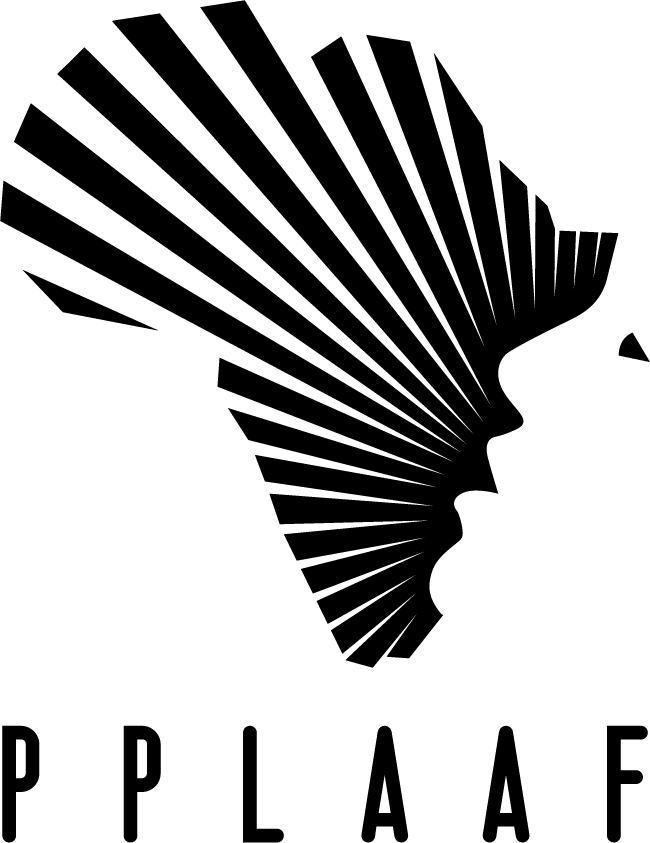Published in 2020
Relevant legislation:
- Constitution of the Republic of Namibia (1990)
- United Nations Convention Against Corruption (UNCAC) 2003
- Southern African Development Community (SADC) Protocol Against Corruption
- Whistleblower Protection Act No. 10 of 2017
- Anti-Corruption Act No. 8 of 2003
- Financial Intelligence Act No. 13 of 2012
- Criminal Procedure Act No. 25 of 2004
- Witness Protection Act No. 11 of 2017
- Prevention of Organised Crime Act No. 29 of 2004
- Protection of Information Act 84 of 1982
Summary
Very often information of improper conduct and nefarious dealings come to the attention of authorities through the actions of individuals who may have access to such information because of their employment and their daily interactions with the subject matter of the report. These individuals are often intimate with the subject matter of the report and are best placed to identify the corrupt practices and misconduct.
The Namibian Whistle Blower Protection Act 10 of 2017 (The Act) established a Whistleblower Office to investigate disclosures of improper conduct, and to investigate complaints of retaliation against the persons making the disclosures.
Whilst the Whistleblower Act sets out protections for persons making disclosures, it offers no financial rewards, as is the case in other jurisdictions like the United States of America, which financially rewards whistle-blowers in terms of the False Claims Act.
There are shortcomings in the Act, specifically as it relates to state agencies. The Act states that if the disclosure “principally involves questioning the merits of government policy, including the policy of a public body”, then the whistleblower may not be protected.
Also, the whistleblower will only be protected in a limited number of instances such as:
- (i) where the disclosure is made in good faith in relation to the information disclosed. This is very vague as good faith is subjective and needs objective testing to prove authenticity.
- (ii) if the whistleblower has reasonable cause to believe the information/disclosure is substantially true.
These limitations have an effect on the willingness of potential reporters of misconduct and corrupt practices (whistleblowers), especially those employed or situated within official state agencies, to report wrong-doings, which are often perpetuated under the guise of public policy and the implementation of strategic state objectives.
Public service employees are often vulnerable in that they generally are more informed about institutional mechanisms for receiving and processing reports and complaints of corruption, but this advantage is negated in the absence of adequate protection systems when reporting acts of corruption.
If you protect whistleblowers, then people will tend to speak out against wrongdoing and thereby the ethos of good governance and transparency begins to gain a foothold and become entrenched in the consciousness of the society.
People become emboldened to speak out against corruption and unlawful activities when an environment conducive to such conduct is enabled by legislation, and as a matter of record.
Whistleblower laws and policies
The Whistle-blower Protection Act No.10 of 2017 criminalises retaliation against reporters of misconduct and corruption and imposes a fine of 75,000 Namibian dollars or a jail term not exceeding 15 years, or both, on anyone convicted of retaliation.
In terms of subsections 39(2), 43(3) and 45(1) of the Whistle-blower Act No. 10 of 2017, whistleblower protection is granted from the date of the first receipt of the disclosure of corruption until the Commissioner of the Whistleblower Protection Office terminates it in terms of section 52 of the said Act.
Similarly, section 45(1)(d) of the Whistle-blower Act makes provision for whistleblower protection in terms of the Witness Protection Act No. 11 of 2017.
The Witness Protection Act makes provision for effective protection of witnesses and other associated and related persons whose safety may be at risk as a result of their disclosures of impropriety and having to testify in proceedings arising from such disclosures. Such protections may extend to family members of the whistleblower, or witness as the case may be, and may even go to the extent of re-assigning a new identity to the witness, and relocation in the witness protection programme in extreme circumstances.
Such individuals are entitled to protection provided there is reason to believe their safety is at risk. Furthermore, subsection 57(1)(b) of the Witness Protection Act prohibits the disclosure of the identity of a whistleblower, to ensure confidentiality of the whistleblower’s identity if such information has come to the knowledge of any third party. There is also a strict sanction should the provisions of subsection 57(1) and subsection 57(8) of the Witness Protection Act be violated by any person.
Subsection 57(9) of the Witness Protection Act states that any person who contravenes or fails to comply with subsections 57(1) or 57(8) of the Witness protection Act commits an offence and is liable on conviction to a fine not exceeding 100 000 Namibian dollars or to imprisonment for a period not exceeding 10 years, or to both such fine and imprisonment.
Weaknesses And Possible Reforms
There is an overemphasis on punishment for false reporting in that anyone found guilty of making a false report is liable to pay a fine of up to 100 000 Namibian dollars and/or a term of imprisonment not exceeding 20 years; as opposed to the lesser sentences imposed on persons who exact retaliation against whistleblowers. The issue of disclosures being vetted through the Commissioner or his investigators in the Whistle Blower Protection Office also raises the spectre of possible intimidation of reporters of corruption. This is particularly of concern in matters where politically influential persons are implicated in corruption or suspected corruption.
The discretion to investigate very often vests with persons who may be politically allied with parties under investigation, as in the instance of Namibia where the Whistle-blower Protection Office is located within the ambit of the Prime Minister’s office.
There are also concerns about the Supreme Court’s discretionary power to make public the identity of whistleblowers if in the court’s opinion the interests of justice call for such public disclosure. In the context of the above the framework of supporting legislation, such as the Anti-Corruption Act no. 8 of 2003, and specifically the provisions of section 52 thereof, may need to be revisited.
Secrecy Laws
Beneficial ownership in its simplest description refers to anyone who enjoys the benefits of ownership of a security or property without being on record as the owner. It appears then that the beneficial owner is a natural person who, directly or indirectly, exercises substantial control over, or has a substantial economic interest in, or receives a substantial economic benefit from a company.
Companies are very often used to channel benefits to hidden beneficial owners, and very often these owners are “politically exposed persons” (PEPs). A politically exposed person (PEP) is someone who through their prominent position or influence, is more susceptible to being involved in bribery or corruption.
How then are whistleblowers to report on irregularities when they are constrained by confidentiality clauses in their contracts of employment? Are they simply to be officious bystanders and view corrupt practices occurring in their workplace without taking action, and also because they are restricted by privacy laws?
Companies should be compelled to comply with the following requirements:
- there must be full disclosure of ownership structures, including all the details of all owners who meet the criteria of beneficial ownership,
- all nominees, including natural and legal persons, and who the nominees represent must be disclosed.
These requirements must be strictly complied with, and Namibian law does require disclosure of nominees in company filings or other official documents. Also, the information pertaining to the beneficial owners must be updated annually.
The Financial Intelligence Act does make provision for customer due diligence to be undertaken by financial institutions in efforts to enhance compliance with the law, and to prevent circumvention which could obfuscate corruption and fraud.
The Protection of Information Act, No.84 of 1982 (PIA) regulates how information is to be disseminated in the public domain. PIA outlaws the possession and disclosure of information unlawfully obtained but the Namibian courts are loath to enforce its provisions in instances where the law is used to shield corrupt practices as was the case in the “Fish rot” case in 2019, and in 2018 in the matter where the Director-general of the Namibian Central Intelligence Services (NCIS) sought to prevent publication of corruption involving former members of the NCIS by the Patriot Newspaper.
Media And Speech Laws
REPORTERS SANS FRONTIERE (RSF) ranks Namibia as Africa’s best ranked country in its 2019 World Press Freedom Index with a ranking of 23, up three places from its ranking at 26 from the previous year.
Freedom of speech is a constitutionally enshrined right under Article 21(1)(a) of the Namibian Constitution which states as follows: “All persons shall have the right to freedom of expression, which shall include freedom of the press and other media”.
The courts in Namibia have developed a jurisprudence that is conscious of its repressive past and courts are seeking to develop and entrench and safeguard the freedoms set out in chapter 3 of the Constitution of the Republic of Namibia.
Despite the progressive stance of the superior courts, the executive has not been displayed the same enlightened view. During the 2019 election campaign, an official in the national government referred to journalists as “flies” poisoning the population when members of the media were critical of the manner in which the Namibian authorities had initially handled the “fishrot” debacle and exposed the involvement of high-level government officials and members of the governing party complicit in that corruption scheme.
Compliance With International Standards
It would appear that Namibia is a jurisdiction that has sought within the last two decades to maintain internationally acceptable standards and to implement strategies aimed at curbing the threats posed by institutional corruption, specifically in the area of state functionaries and has to some extent corralled the influence of private entity corruption through its reporting requirements on beneficial ownership.
This is significant in a society where single-party dominance, in the form of SWAPO, which has significant reach and influence in how reporting agencies and ultimately investigating organs, conduct enquiries into possible cases of corruption, fraud and money laundering.
The recent Fishrot criminal case involving SAMHERJI Fishing, an Icelandic fishing company and a former cabinet minister, and director of Investec Namibia, where the parties were charged with collusion on fishing quotas and money-laundering, is an indication of the efforts undertaken by investigating agencies, and the efficacy of the whistle-blowing apparatus in exposing corruption by politically influential people and entities. International civil society organisations like PPLAAF were instrumental in this particular instance in providing legal assistance to the whistleblowers and adding impetus to the exposure of this graft scheme which was unlawfully plundering Namibia’s natural resources through the aid of corrupt state officials and private sector collusion.
It should be stressed that the challenge for a developing country like Namibia is ultimately the willingness of state agencies to enforce the legislation, and the ability and willingness of the Namibian courts, under the Namibian Constitution and the other legislation referred to herein, to give expression to the rights of whistleblowers to report corruption without fear of reprisal, and where necessary to enforce the protections set out in the Namibian Whistle-blower Protection Act and other laws
Knowledge, support and action centers
Institute for Public Policy Research (IPPR)
The Institute for Public Policy Research is a non-profit organisation founded in 2001 to research the social, political and economic issues which impact development in Namibia. It also focuses on the impact of corruption and measures to combat the destabilising effects thereof on the growth and economic stability of Namibia. The IPPR defines itself as being independent of government, political parties, commercial interests and other interest groups and presents itself as being an instrument for the promotion of a free and transparent governance system in Namibia unhampered by corruption.
- Address: Institute for Public Policy Research (IPPR) House of Democracy, 70-72 Frans Indongo Street, Windhoek
- Tel: +264 61 240514
- Fax: +264 61 240516
- Email: info@ippr.org.na
FINANCIAL INTELLIGENCE CENTRE (FIC)
The Financial Intelligence Centre is the financial intelligence unit of the Republic of Namibia tasked with combatting money laundering, financing of terrorism and proliferation activities, including any other financial crimes within the borders of Namibia. The FIC works closely with other law enforcement agencies such as the Namibian Police Force, Customs and Excise and the Anti-Corruption Commission.
- Address: 71 Robert Mugabe Avenue, Windhoek PO Box 2882
- Tel: +264 61 283 5287
- Fax: +264 61 283 5259
- Email: helpdesk@fic.na
ANTI-CORRUPTION COMMISSION (ACC)
The Anti-Corruption Commission of Namibia (ACC) was established to combat and prevent corruption. The ACC is an independent agency tasked with the prevention of corruption in state bodies and private entities. It has the power to investigate allegations of corruption and makes recommendations to institutions on methods of preventing exposure to corruption, and works closely with the prosecution service in bringing matters before the courts where there is evidence of corrupt practices and illegality.
- Address: C/O Mont Blanc and Groot Tiras Street, Eros, Windhoek PO Box 23137
- Tel: +264 61 435 4000 and Fax: +264 61 300952
- Email: anticorruption@accnamibia.org




